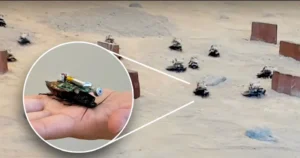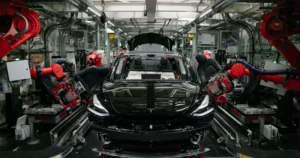AI Advancements: China’s Data Centers Set to Surpass South Korea in Water Consumption by 2030
China is ramping up its AI efforts by expanding data centers, which use an astonishing amount of water. A report by China Water Risk reveals that by 2030, China’s data centers could consume a staggering 792 billion gallons of water. This trend is not limited to China; globally, AI models are draining vast amounts of water and energy. Experts warn of the escalating environmental impact and emphasize the need for more sustainable solutions in AI development.












